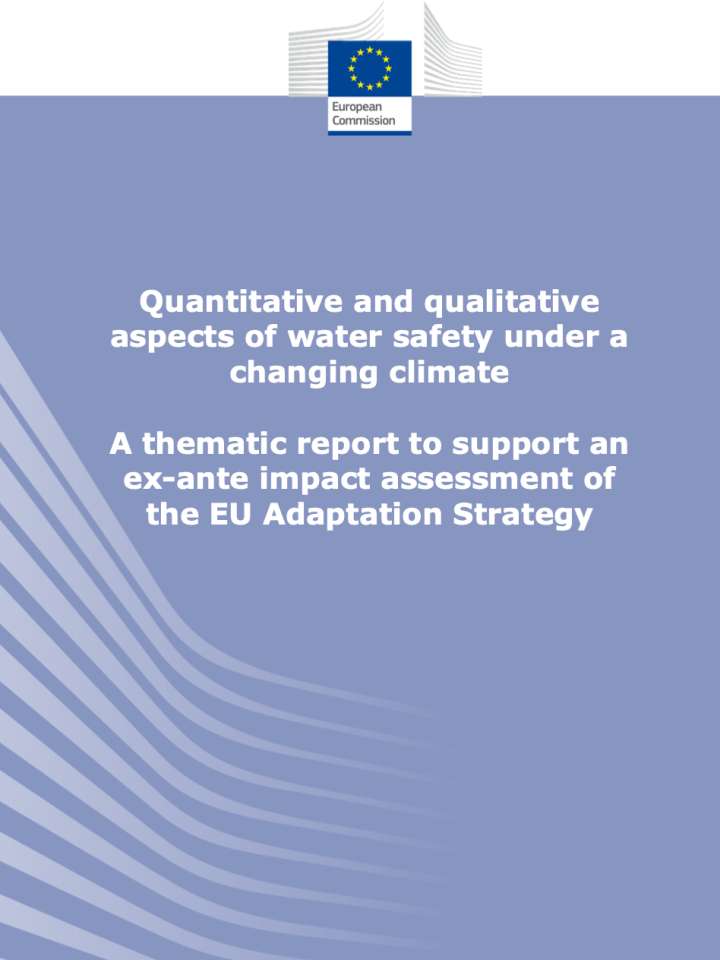Quantitative and qualitative aspects of water safety under a changing climate: A thematic report to support an ex-ante impact assessment of the EU adaptation strategy
This thematic report provides a rapid review and qualitative rating of the current influence of those other issues on climate sensitivities; the extent to which existing legislation and actual arrangements provide adaptive capacities that address them; and the exposure of resultant vulnerabilities to climate hazards that leads to risks of impact. Subsequently, the report identifies and provisionally rates adaptation policy options that can address the issues in ways that will reduce the climate sensitivities that the issues influence and/or increase associated adaptive capacities.
The key issues identified (i.e. rated as leading to at least medium-high risks of climate change impact) that are relevant to all Member States comprise: urban landcover; agricultural activities; water storage; water abstraction; and infrastructure. Glacial reliance and coastal zone management are also identified as key issues for Member States where they occur. Water abstraction is rated as resulting in the highest risks of climate change impact on drinking-water availability. Adaptation policy options identified that can address the issues in ways that will reduce the climate sensitivities that they influence and/or increase associated adaptive capacities are: Promotion of climate-resilient water safety plans (WSPs) under the Drinking Water Directive, water allocation management plans (WAMPs) and expanding on the Water Framework Directive’s Common Implementation Strategy to provide guidance on identifying and prioritising multiple pressures (multiple-pressures guidance), among others.
Explore further
